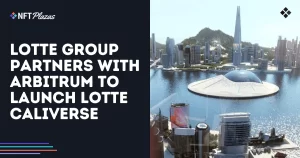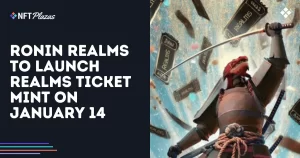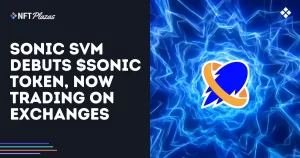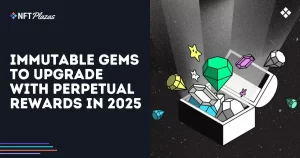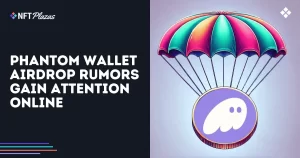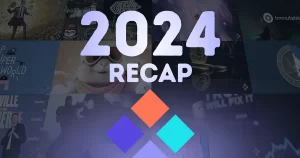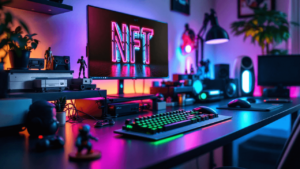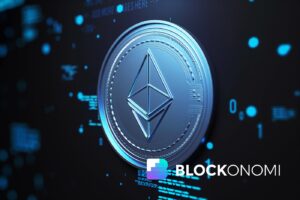The Top 5 NFT Marketplaces of 2024
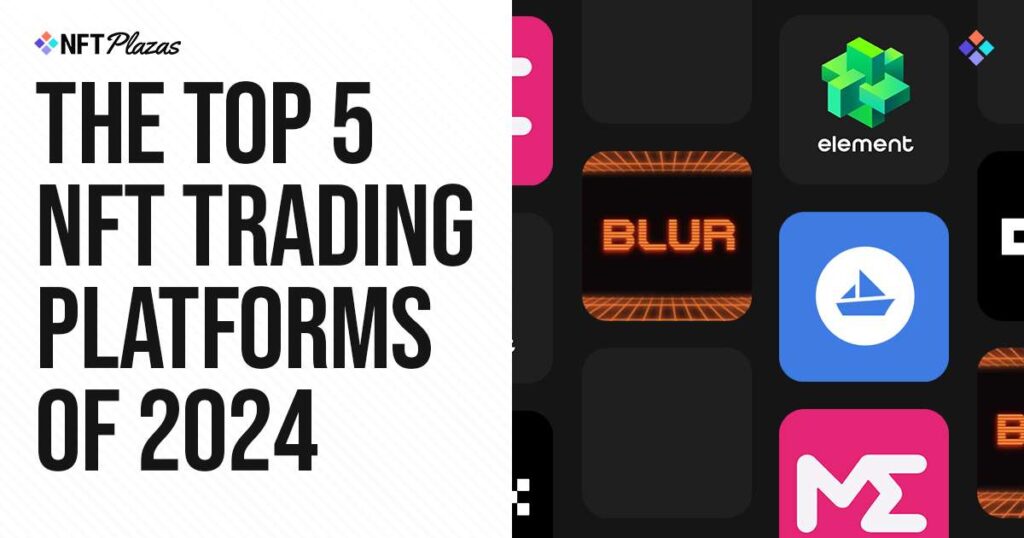
Although NFTs are a long way from their 2021 all-time highs, NFT trading is still a multi-billion dollar industry – but the NFT marketplaces we use in 2024 are very different to back then.
From fresh-faced newcomers with novel ideas, crypto exchanges spotting an opportunity, and industry titans dropping the ball, the NFT marketplaces we use have changed significantly in that time – and whether its PFPs, digital art, game assets or more, these marketplaces still fight tooth-and-nail for your custom to this day.
Let’s take a closer look at the top 5 NFT marketplaces of 2024.
 Source: Element
Source: Element#5 Element
Launched: July 1, 2021Blockchains: Ethereum, Polygon, Avalanche & many more30d volume: $33.3M USD
Element is a relative newcomer in the NFT marketplace domain, but has quickly gained traction due to its multichain support and accessibility.
Founded by Feng Wang and Hongliang Zhang and released in 2021, it supports a huge range of chains: Ethereum, BNB Smart Chain, Polygon, Avalanche, Optimism, Arbitrum, ZKSync Era, Base, Linea, Blast, Cyber and opBNB – making it go-to trading platform for a wide range of digital assets.
Another feature that’s driven its popularity is its multi-market listings, hosting native listings, as well as those on OpenSea, LooksRare, X2Y2, and other popular NFT marketplaces.
Element supports most major wallets, including MetaMask, OKX Wallet, Binance Wallet and more. The platform also provides real-time data tracking, with detailed insights on floor prices, trading volumes, and activity trends.
Whilst it has yet to reach the popularity of the top NFT marketplaces, Element’s low fee structure and wide blockchain support has seen its popularity continue to grow – and we anticipate it will continue to do so across 2024.

 Source: OKX
Source: OKX#4 OKX NFT
Launched: April 24, 2023Blockchains: Bitcoin, Ethereum, Solana & many more30d volume: $19.0M USD
OKX NFT is an extension of the OKX cryptocurrency exchange, leveraging its existing user base to create a powerful NFT trading platform.
The NFT trading platform initially launched to support the trade of the emerging Bitcoin inscriptions, and has since built on that by incorporating support for Ethereum, Solana, Optimism and more.
It’s high-profile partnerships with the likes of McLaren and Manchester City F.C. have exposed the OKX brand to millions of people around the world, and facilitated exclusive NFT releases with both of these well-known brands.
OKX NFT currently supports popular wallets such as MetaMask and Phantom, as well as its native OKX Wallet. The platform includes powerful search and filtering tools, as well as ample real-time NFT analytics.
With its high-profile partnerships flourishing, OKX is on-course to continue its growth across 2024.

 Source: Magic Eden
Source: Magic Eden#3 Magic Eden
Launched: September 17, 2021Blockchains: Solana, Ethereum, Bitcoin, Polygon, Base30d volume: $74.3M USD
Magic Eden rules the roost for Solana NFT trading – but has also expanded support to Ethereum, Bitcoin, Polygon and Base.
Developed by a cohort of Australian blockchain enthusiasts, Magic Eden quickly became the go-to platform for trading Solana-based NFTs upon its inception – a position it has maintained to this day.
The platform is known for playing a hand in the growth of Solana as a whole, and being the marketplace of choice for the trading of (at the time) DeGods, y00ts and CryptoUndeads.
Magic Eden supports more than 400 third-party wallets, including MetaMask, Coinbase, Trust and more. The platform provides comprehensive real-time data, with detailed analytics and tracking of key NFT collection metrics.
Over the years, Magic Eden has consistently ranked as one of the most popular marketplaces amongst the community, particularly for its defence of creator royalties – and despite a 2023 bug that allowed fake listings to be assigned to established collections, Magic Eden remains a key marketplace as of 2024, with its increasing array of features continuing to build its community.

 Source: OpenSea
Source: OpenSea#2 OpenSea
Launched: December 20, 2017Blockchains: Ethereum, Polygon, Base & many more30d volume: $104.6M USD
The original NFT marketplace, OpenSea was founded in 2017 by Devin Finzer and Alex Atallah.
OpenSea is best-known as the leading marketplace during the 2021 NFT boom, facilitating the trading of top Ethereum collections such as Bored Ape Yacht Club, Doodles, Moonbirds and more. Today, it supports a wide variety of additional blockchains, including BNB Smart Chain, Avalanche, Klaytn and more.
The platform offers a polished, user-friendly experience, and supports a wide variety of wallets, including MetaMask, Coinbase Wallet, WalletConnect and more. Its robust and growing set of features, tooling and analytics continue to add value to the platform, and its plethora of users.
OpenSea has faced a variety of challenges, including its stance on supporting creator royalties, fee structures, and its purchase of the Gem marketplace to rebrand it to OpenSea Pro – but despite a decline in overall popularity as other NFT marketplaces has risen, it is still a cornerstone of the industry.
Will it retain its position as a mainstay of the industry in 2024? Time will tell.

 Source: Blur
Source: Blur#1 Blur
Launched: February 14, 2023Blockchains: Ethereum, Blast30d volume: $96.0M USD
Since its launch, Blur has shook up the NFT industry – and quickly rose to become its most popular marketplace.
Developed by Tieshun Roquerre (Pacman) and Anthony Liu (Galaga), Blur is specifically designed for professional traders, offering advanced tools and features for trading first Ethereum NFTs, and then NFTs from its own blockchain, Blast.
Blur utilises its own governance token $BLUR, rewarded to users for listing and trading on the platform – no doubt a significant driver to its growth thus far – alongside its controversial zero-fee structure.
The platform is data-driven, optimising for speed and prioritizing efficiency over aesthetics. Blur supports many different wallets, including MetaMask, WalletConnect, Coinbase Wallet and more, and users can explore NFTs from leading collections, easily track trending collections, and are given ample real-time data analytics, with granular insights for experienced traders.
Despite its success, Blur has not been without controversy. It has faced scrutiny over its aggressive marketing, its “trade-to-earn” practices, and its aforementioned zero-fee structure, with some in the community blaming Blur for the wider decline in the floor prices of NFTs.
Nevertheless, the NFT community at large has voted with their wallets. Blur has solidified its position as one of the top NFT marketplaces in 2024, and as it continues to add features and offer incentives for its users, it is in a strong position to continue to be a market leader as we head into 2025.




